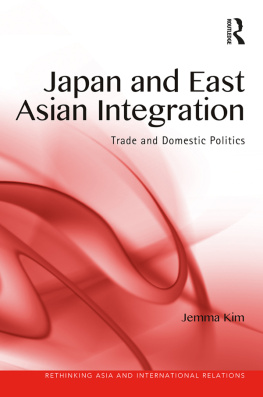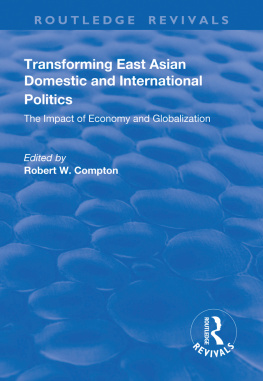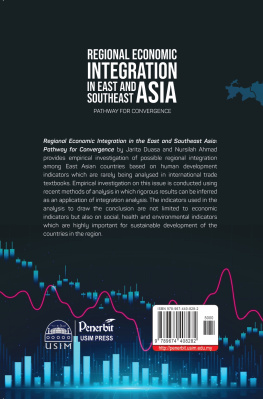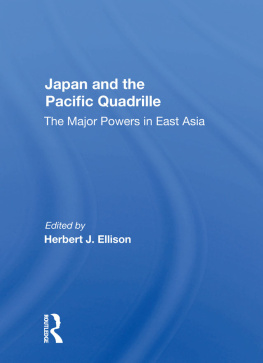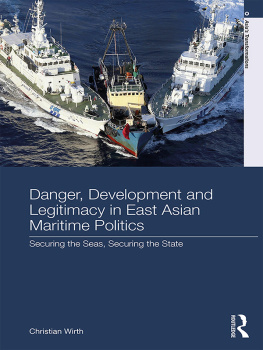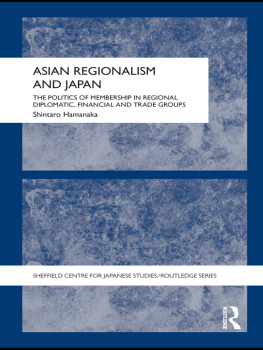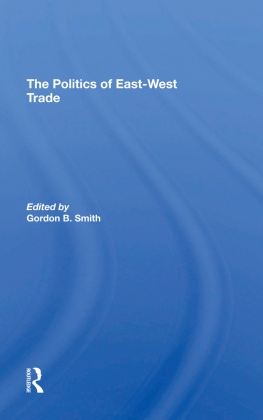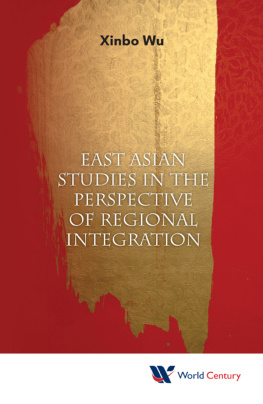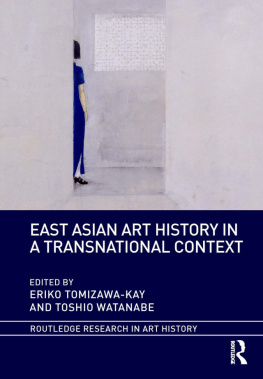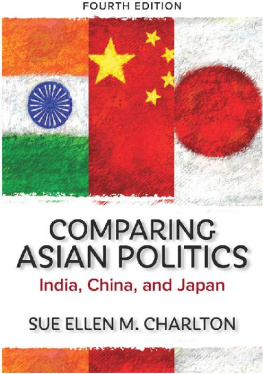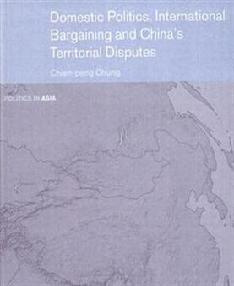p.i
Japan and East Asian Integration
For almost 50 years, Japan pursued a single-track approach focusing trade negotiation efforts exclusively on the global multilateral forum while shunning regionalism as harmful to the General Agreement on Trade and Tariffs/World Trade Organization system. However, following the tsunami disaster of March 2011 and widespread economic downturn, Tokyo has engaged much more actively in pursuing bilateral Free Trade Agreements (FTAs).
This book explores the turnaround in Japanese strategy and trade policy. Drawing on case studies and including interviews with FTA policymakers within the government and key interest groups, it focuses on the domestic political process of FTA and Trans-Pacific Partnership (TPP) negotiations to investigate the cause of the policy shift.
This work will prove useful to students, scholars and policymakers interested in international political economy, Japanese trade policy, East Asian regionalism and the FTA/TPP.
Jemma Kim is Associate Professor of the School of Global Japanese Studies at Meiji University, Tokyo, Japan. She earned her PhD in International Relations from Graduate School of Law, Hitotsubashi University in 2008 (Double Master Degree in both Korea University and Hitotsubashi University). Her specialties are international political economy, FTA policy and East Asian international relations. Prior to joining Meiji University, she was Assistant Professor at the Institute of Asia-Pacific Studies, Waseda University and COE researcher at the Department of Law in Hitotsubashi University.
p.ii
Rethinking Asia and International Relations
Series Editor Emilian Kavalski, Australian Catholic University (Sydney)
This series seeks to provide thoughtful consideration both of the growing prominence of Asian actors on the global stage and the changes in the study and practice of world affairs that they provoke. It intends to offer a comprehensive parallel assessment of the full spectrum of Asian states, organisations, and regions and their impact on the dynamics of global politics.
The series seeks to encourage conversation on:
what rules, norms, and strategic cultures are likely to dominate international life in the Asian Century;
how will global problems be reframed and addressed by a rising Asia;
which institutions, actors, and states are likely to provide leadership during such shifts to the East;
whether there is something distinctly Asian about the emerging patterns of global politics.
Such comprehensive engagement not only aims to offer a critical assessment of the actual and prospective roles of Asian actors, but also seeks to rethink the concepts, practices, and frameworks of analysis of world politics.
This series invites proposals for interdisciplinary research monographs undertaking comparative studies of Asian actors and their impact on the current patterns and likely future trajectories of international relations. Furthermore, it offers a platform for pioneering explorations of the ongoing transformations in global politics as a result of Asias increasing centrality to the patterns and practices of world affairs.
For a full list of titles in this series, please visit https://www.routledge.com/Rethinking-Asia-and-International-Relations/book-series/ASHSER1384
Titles
Japan and East Asian Integration
Trade and Domestic Politics
Jemma Kim
The Role of Taiwanese Civil Society Organizations in Cross-Strait Relations
rka Waisov
p.iii
Japan and East Asian
Integration
Trade and Domestic Politics
Jemma Kim
p.iv
First published 2018
by Routledge
2 Park Square, Milton Park, Abingdon, Oxon OX14 4RN
and by Routledge
711 Third Avenue, New York, NY 10017
Routledge is an imprint of the Taylor & Francis Group, an informa business
2018 Jemma Kim
The right of Jemma Kim to be identified as author of this work has been asserted by her in accordance with sections 77 and 78 of the Copyright, Designs and Patents Act 1988.
All rights reserved. No part of this book may be reprinted or reproduced or utilised in any form or by any electronic, mechanical, or other means, now known or hereafter invented, including photocopying and recording, or in any information storage or retrieval system, without permission in writing from the publishers.
Trademark notice: Product or corporate names may be trademarks or registered trademarks, and are used only for identification and explanation without intent to infringe.
British Library Cataloguing in Publication Data
A catalogue record for this book is available from the British Library
Library of Congress Cataloging in Publication Data
A catalog record for this book has been requested.
ISBN: 9781138282520 (hbk)
ISBN: 9781315270708 (ebk)
Typeset in Times New Roman
by Swales & Willis Ltd, Exeter, Devon, UK
p.ix
Today, the paradigm of regional order in the Asia-Pacific has shifted beyond bilateral free trade agreements (FTAs) to the age of broad economic integration based on mega-FTAs. Various frameworks such as the Trans-Pacific Partnership (TPP), Regional Comprehensive Economic Partnership (RCEP), and One Belt, One Road initiative have been worked out and the development of a new regional order in the Asia-Pacific is underway. Particularly, an agreement in principle on the TPP was reached in October 2015 to accelerate the talks on building a new trade order through mega-FTAs. In the month following the agreement in principle, the leaders of the countries reached an agreement to speed up the previously stagnant negotiations on the ChinaJapanSouth Korea FTAs. China, on the other hand, wanted the RCEP, which consists of 16 countriesChina, Japan, South Korea, the 10 ASEAN countries, Australia, New Zealand, and Indiato be at the center of formation of the Asian free trade zone. Obamas policy of rebalancing the U.S. priorities to Asia, first announced in the fall of 2011, intensified the involvement of the U.S. in the regional order of the Asia-Pacific, while China has been attempting to seize the initiative on the regional order, actively clamoring for One Belt, One Road initiative and the Asian Infrastructure Investment Bank (AIIB).
For the Japanese government, the major significance of the TPP lies in participating in the economic order of the Asia-Pacific region under a new international environment with the return of the U.S. to Asia, the economic and military rise of China, and the rise in Japanese presence. Thus, the Japanese government could respond to the call of the Japanese export industry to pave the way for an FTA with the U.S. and to catch up with South Korea, who was conducting high-level simultaneous, multilateral FTA negotiations.
Earlier this year, President Trump signed an executive order formally ending the U.S. participation in the TPP, thus casting a shadow on the future of the TPP. However, while the main purpose of the TPP is free trade, it is based on the idea of political stability to improve governance in the region through economic partnership, and its significance should not be underestimated. That is, with the stagnation of the Doha Round, the TPP has become a major driving force, with regional liberalization as the central stage for trade talks, and, at the same time, carrying a strategic value of strengthening the relations between the member countries. In the future, the TPP can become the cornerstone for a WTO consensus. Be it through the RCEP or TPP, the concept of a framework established by Japan and other Asian countries imposing global trade rules presents a state of affairs different from the trends dictated by the West. Furthermore, Japan, which has a mature market economy and is proficient in creating an elaborate system, is expected to play a key role in establishing international regulations. The TPP is expected to play a major role in the development of regional order in the Asia-Pacific.


